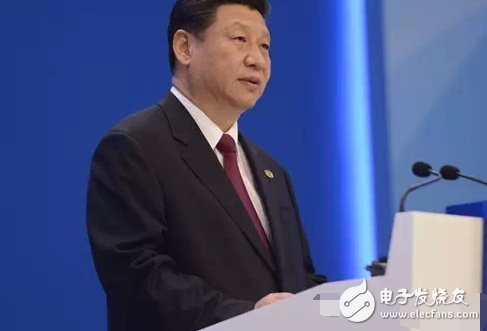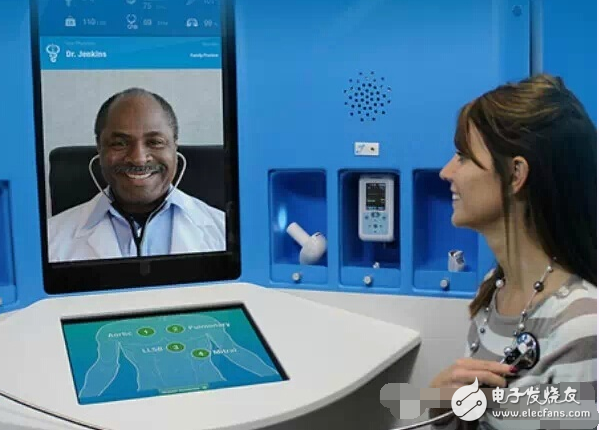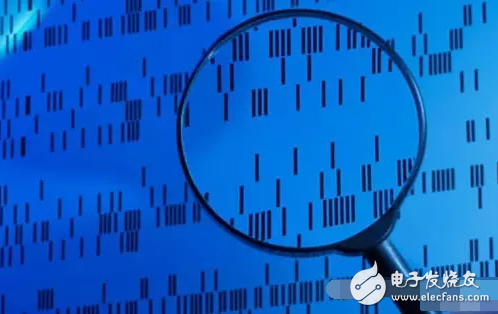How to achieve precision in precision medicine
Precision Medicine is an emerging approach to disease prevention and treatment that takes into account differences in personal genetics, environment and lifestyle. On January 20, 2015, US President Barack Obama put forward the "Precision Medicine Plan" in his State of the Union address, hoping that precision medicine can lead a new era of medicine. As the next generation of medical treatment technology, precision medicine has great technical advantages over traditional methods of diagnosis and treatment. Compared with traditional methods of diagnosis and treatment, precision medicine has precision and convenience. On the one hand, gene mutation can be used to find the mutation gene of cancer, so that the symptomatic medicine can be quickly determined, and the time for patients to try various treatment methods can be saved, and the treatment effect can be improved; On the one hand, gene sequencing requires only the patient's blood and even saliva, without the need for traditional pathological sections, which can reduce the damage to the patient's body during the diagnosis. It is foreseeable that the emergence of precision medical technology will significantly improve the diagnosis and treatment experience of cancer patients and the potential for development. The recent health network hot words are more than "precise medical"! Because it is not only US President Barack Obama, but also General Secretary Xi Jinping of China. These two big cows, each in charge of the party, have an important influence on the East and West countries. In his 2015 State of the Union address, Obama announced that the United States will invest $215 million in precision medical programs. The project will collect genetic information from at least 1 million volunteers in an attempt to find links between genetic analysis and precision treatment, medication, disease risk assessment, and neonatal defect assessment. In February of this year, General Secretary Xi Jinping instructed the Ministry of Science and Technology and the National Health and Family Planning Commission to request the State to set up China's Precision Medical Strategy Expert Group. A total of 19 experts formed the National Expert Committee on Precision Medical Strategy. China will launch a precision medical plan that will invest 60 billion by 2030. Why are the leaders of the United States and China focusing on precision medicine? And why is this time to put forward precision medicine? First, biological and medical research has become a data-intensive science, and integrating data has become an opportunity in the field. At the moment of big data siege, the ability to store and analyze genetic data on a large scale is already in place; secondly, gene sequencing is becoming more compact and faster, and its success rate in improving disease diagnosis and treatment is increasing. In short, today's precision medical plans come at a time when medical biology research, information technology and public attitudes have not changed before. Although precision medicine itself is not a new thing, the current development of genetic technology and the big data outbreak brought by the Internet have brought new opportunities to start precision medicine, so the government has begun to support this field. Accurate medical treatment is based on personal genomic information, combined with proteomics, metabolomes and other related internal environmental information, to design the best treatment plan for patients, in order to achieve a maximum medical treatment and minimize the side effects of a medical customization model. Conceptually, the diagnosis and treatment of a disease is based on the rational selection of the patient's own genetic, molecular or cytological information. The patient's personal genetic information (genome) is the basis of precision medicine. With the help of genetic testing technology, it can more deeply, accurately and comprehensively reflect the essential characteristics of the disease, directly "locating" the accurate defects of the disease, and then accurately use the medicine. Under the international and domestic environment, our Kangkang Gene United Nations Human Genome Southern Research Center has taken advantage of the trend to provide authoritative and affordable genetic testing programs for the people, and is also a call to respond to the country's "precise medical care." Our cooperative laboratory, the National Human Genome Southern Research Center, represents China with 1% of research on human genome-wide research, representing the highest level of technology in the country, seeking truth and being pragmatic. Promoting the development of genetic testing and actively responding to the call for precision medical care is the mission and responsibility of Kangkang Gene. Imagine if you go to the hospital when you are ill, the doctor will take the test report of the personal genome provided by Kangkang Gene with reference to the collection and detection of the signs and symptoms of the disease, and give appropriate diagnosis and treatment options. A treatment regimen that does not produce significant side effects. If it is a bacterial or viral infection, genetic testing can also be used to find suitable antibiotics and antiviral drugs. In the recovery period of the disease, you can use the tips of the genetic test report to select the food that suits your body condition, which is more conducive to the recovery of the body. Everyone can enjoy the true "precise medical treatment". Warfarin, which is clinically used for anticoagulation, is widely used in the case of thrombotic diseases such as deep vein thrombosis. In recent years, clinical observations have shown that although the patients have the same symptoms, the individual use of warfarin varies greatly among patients, and these differences are directly related to the patient's own genetic background. The US FDA revised the Huafa in February 2010. Lin's drug specifications, because of the gene specificity of the dose, before the prescription drug, it is recommended to carry out genetic testing on CYP2C9, VKORC1, and drug dosage adjustment for different gene types. In fact, "the drug is a three-point drug," the toxic side effects of the drug are also clinically faced problems. Under the premise of genetic testing provided by Kangkang gene, our health experts can interpret individual genetic data, evaluate the metabolism and toxicology of drugs for individual drug use, and then achieve effective and safe. The ideal medication effect. The significance of genetic testing for personal care is that Kangkang gene can provide almost all known genetic disease testing programs, can understand the genes involved in drug metabolism and evaluate the efficacy of drugs, can understand the characteristics of known traits, and can be at risk for complex diseases. Evaluate to make healthy people prolong their health, so that people who are ill can find a suitable treatment plan that is more effective. Do precision medical treatment in the true sense! China leading manufacturers and suppliers of Level 2 Charger,Ev Charging Stations, and we are specialize in Charging Station,Flexible Group Charging Station, etc. Level 2 Charger,Ev Charging Stations,Charging Station,Flexible Group Charging Station Shenzhen Hongjiali New Energy Co., Ltd. , https://www.hjlcharger.com




